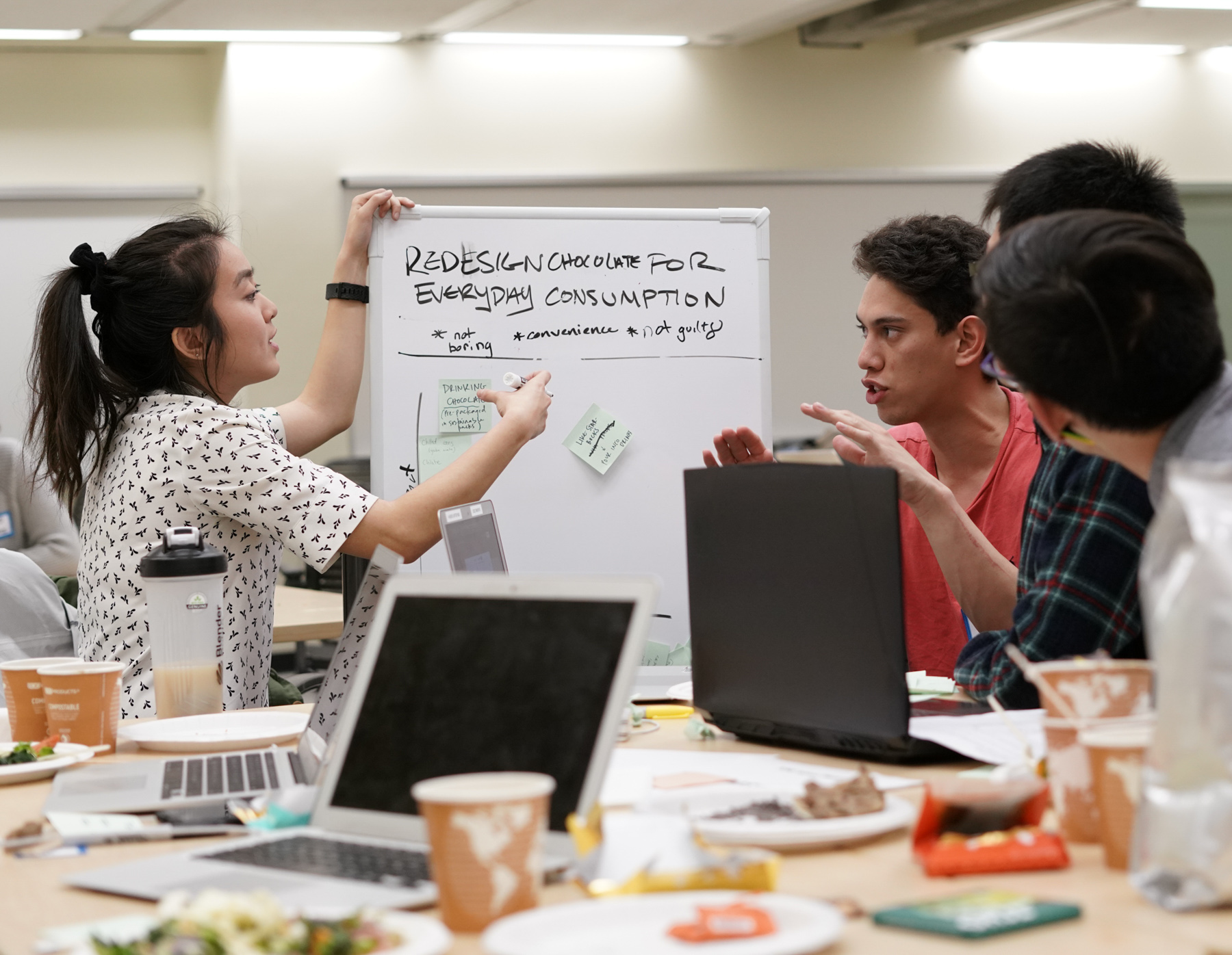
“If I ask 100 people what kind of chocolate they like, I’m expecting them to say, ‘I really love cocoa beans from northwest Madagascar — that’s my favorite, about a 72 to 78 percent,’” said Brad Kintzer, chief chocolate maker at TCHO, to a crowd of students in Moffitt Library on Saturday.
“But that doesn’t happen,” he said. “Probably half of the people that I ask say something like, ‘I like milk chocolate with almonds.’”
Not to be discouraged, Kintzer — equipped with several boxes full of free TCHO chocolate to dole out to participants — decided to crowdsource the sweet-toothed tragedy to a room full of chocolate lovers in the library’s basement during a daylong “food hackathon.”
The big question: How can the company move outside of the traditional chocolate bar and expose consumers to chocolate of different origins and flavors?
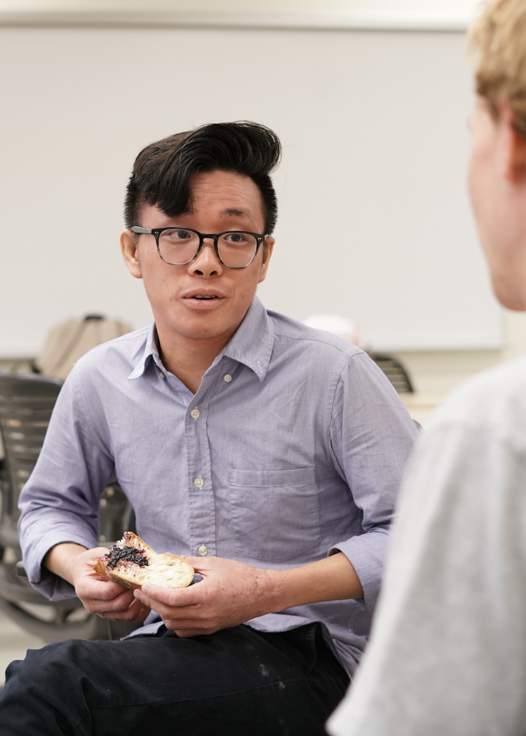
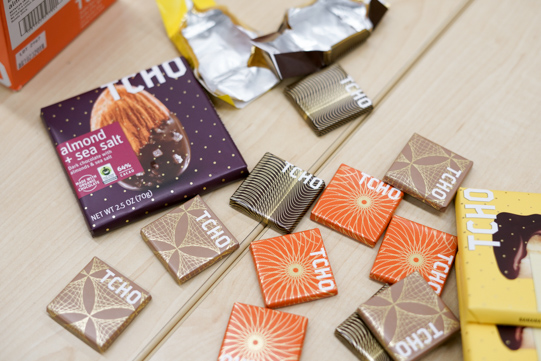
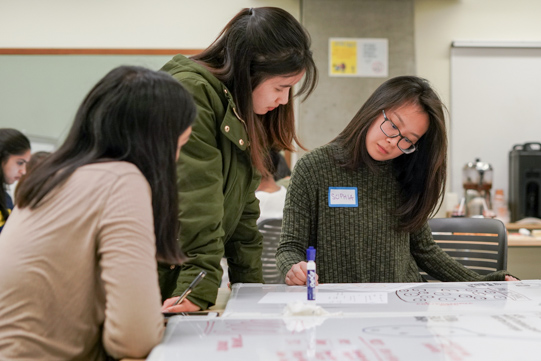
Enter FoodInno, a student club on campus committed to connecting food businesses with students passionate about the food world. Formed in 2015, FoodInno is one of the campus’s b.makerspace clubs that use the Library’s tools and spaces to collaboratively design, create, and innovate.
On Saturday, FoodInno held a “design sprint,” in which about 50 students from diverse disciplines split into teams to tackle TCHO’s design questions. Students spent hours huddled together during the event, brainstorming and fine-tuning ideas for a new TCHO product line — all the while keeping in mind the brand’s signature characteristics: zany flavor blends and ethically sourced ingredients.
Most cocoa bean farmers in West Africa and South America have never tasted chocolate, Kintzer said, and don’t know the value or nuances of the product they’re producing. To upend that dynamic, TCHO built a network of “small, scrappy laboratories” in the countries where their cocoa beans originate (such as Brazil, Ghana, Peru, and the Dominican Republic) where farmers harvest, roast, and grind beans into chocolate “in their own little world,” Kintzer said.
Hailey Zhou, co-president of FoodInno, said the student club works exclusively with foodmakers who are mission-driven, family-run, or local — “not like Coca-Cola” — and that she hoped the event would shine a light on sustainable company practices.
During the food hackathon, teams built education and outreach into their imagined products’ packaging. One group conceived a line of chocolate globes, which would contain fun facts on rice paper describing the chocolate’s country of origin and resulting flavor profile. Another group proposed a line of chocolate snack bits that would recycle the usually discarded chocolate used to flush out the machines when switching between different allergens.
“We find inspiration for new ideas everywhere,” Kintzer said in an interview. “Sometimes it’s accessing market data, but that stuff just tells you what people are already doing. You end up getting into a cycle of what is already successful.”
“But creating fresh, new, inspirational ideas is what we’re looking for,” he continued. “That’s part of what we love about being based in Berkeley — being able to drive up the road and be surrounded by awesome, creative people.”
The first place winner was a team that christened itself “Fashionably TCHOcolate,” which conceived a “TCHOose Your Adventure” box aimed at children, filled with a mix of fun flavors, as well as games and origin stories about the ingredients. Judges from TCHO commended the team for capturing a new demographic by rethinking an existing product.
When his team’s name was announced, Fashionably TCHOcolate member Michael Yang — who had come for the free chocolate — gasped.
The event was a win-win — for the company, as well as FoodInno, which was born out of a research project started by Sohyeong Kim when she was a postdoc at Cal. At the time, she formed the FoodInno Institute — a collaboration between students at UC Berkeley and Stanford — as a way to connect students and academics to industry professionals and jump-start innovation in food production.
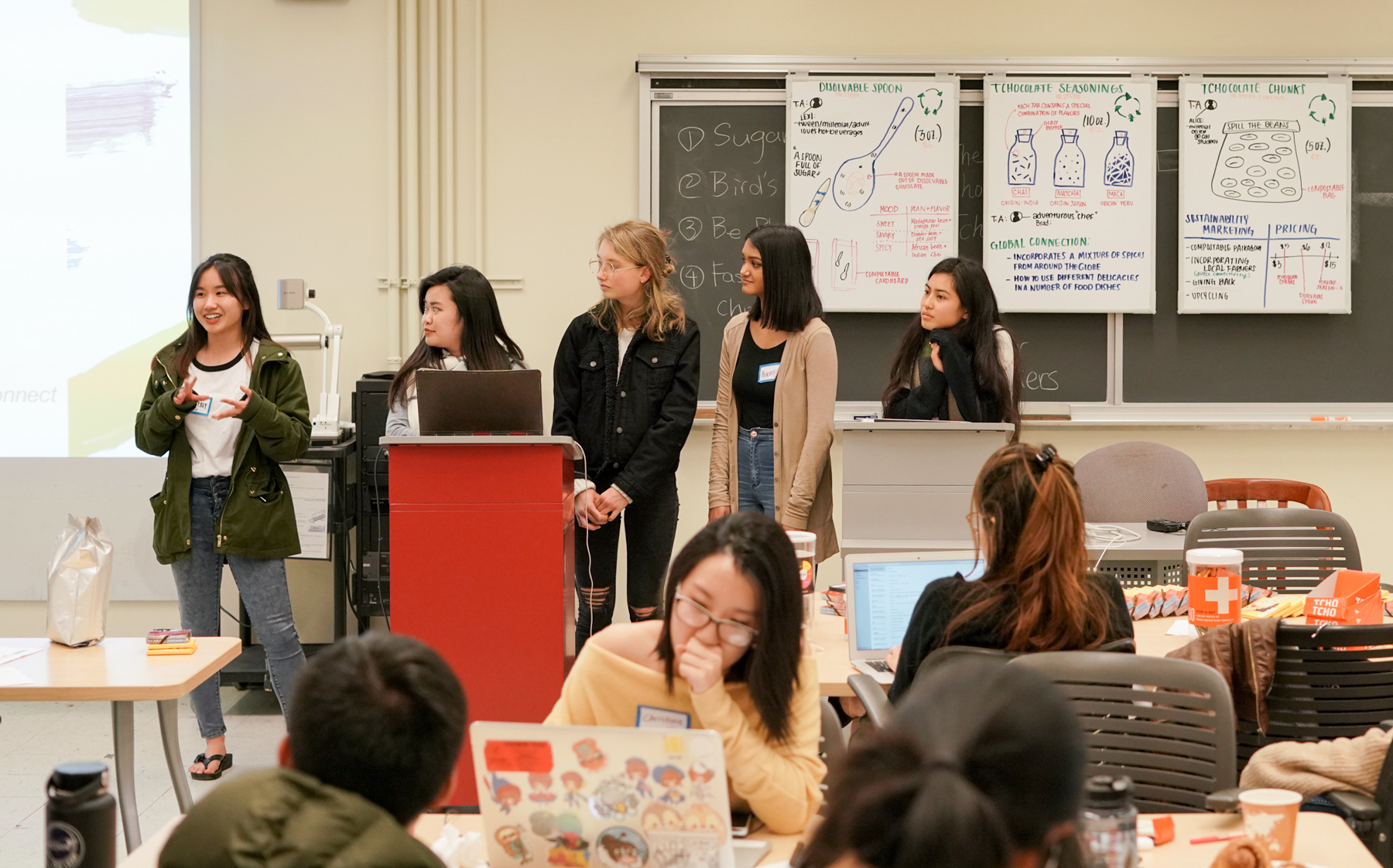
In 2015, the institute held its first food hackathon — also with TCHO — at the company’s factory, in South Berkeley. Zhou and others then created the student club with help from b.makerspace founder Alex Yao to carry out Kim’s vision after she left Berkeley for Stanford. The club holds several hackathons each year — past events have featured kombucha and tofu — and facilitates a regular DeCal — a student-taught course — on food topics such as fermentation, foraging, and eliminating food waste.
“Berkeley doesn’t really have many food-related courses, but a lot of students are so passionate about this topic — they want to make a career out of it — and that’s why they stick together,” Kim said. “I’m so proud and honored to see the legacy continuing and Cal leading this movement.”
Zhou, who recently abandoned plans for medical school in favor of a career in sustainable food, said that the club gives her a sense of accomplishment — and that school has taken a back seat during her three years working with the club.
“I can take an easier load at school, but I don’t know how to not do FoodInno,” Zhou said.